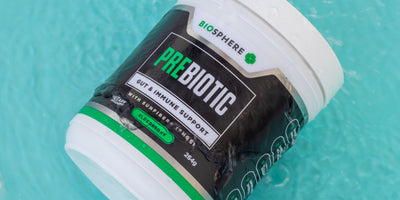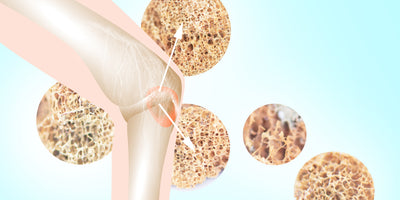
Prebiotics and Diabetes: Managing Blood Sugar with Gut Health
Introduction
Diabetes is a global health crisis that affects millions of people worldwide. The management of blood sugar levels is crucial in controlling this condition and minimising its complications. While medication and diet traditionally play central roles in diabetes management, emerging research suggests that gut health also holds significant potential in controlling blood glucose levels. This article delves into the role of prebiotics, a type of dietary fiber, in enhancing gut health and improving diabetes outcomes. We will explore how integrating prebiotics into your diet can benefit those managing diabetes, from the types of prebiotics available to practical dietary tips.
Understanding Prebiotics: Definitions and Types
Prebiotics are non-digestible fibers that promote the growth of beneficial bacteria in the gut. Unlike probiotics, which are live bacteria, prebiotics serve as food for these bacteria, fostering a healthy microbiome. Common prebiotics include inulin, fructooligosaccharides (FOS), and galactooligosaccharides (GOS). Each type varies in its source and mechanism of fostering gut flora. By understanding the various types of prebiotics, individuals can better tailor their intake to meet their health needs, particularly in the context of diabetes management, where gut health plays a pivotal role.
Prebiotics are found naturally in many foods such as chicory root, garlic, onions, leeks, asparagus, and bananas. Each of these foods contains different types of fibers classified as prebiotics, offering a variety of benefits to the gut microbiome. Incorporating a diverse range of these foods into one’s diet can ensure a broad spectrum of prebiotics, which supports various aspects of digestive health and blood sugar control.
The Role of Gut Health in Diabetes Management
A healthy gut microbiome is increasingly recognised as a critical element in diabetes management. Research has shown that the balance of bacteria in the gut can influence blood sugar levels and overall metabolic health. People with a healthy and diverse gut microbiota tend to have better insulin sensitivity and glucose metabolism, which are key in managing both Type 1 and Type 2 diabetes. This relationship is mediated through several mechanisms, including modulation of inflammation, hormone regulation, and direct effects on glucose processing.
The gut microbiota interacts with dietary components and host cells to produce metabolites that affect insulin sensitivity and inflammation. Short-chain fatty acids (SCFAs), produced by the fermentation of prebiotics by gut bacteria, have been shown to play a significant role in this process. These SCFAs can help regulate energy homeostasis and reduce inflammation, thus improving insulin sensitivity and reducing spikes in blood glucose levels, which is crucial for effective diabetes management.
Mechanisms of Action: How Prebiotics Affect Blood Sugar Levels

Prebiotics influence blood sugar levels primarily through the enhancement of gut microbiota which in turn impacts metabolic processes. By feeding beneficial gut bacteria, prebiotics help increase the production of SCFAs, like butyrate, propionate, and acetate. These compounds are known to enhance the gut lining, reduce inflammation, and increase the secretion of hormones like GLP-1, which helps in lowering blood sugar by enhancing insulin secretion and decreasing glucagon release after meals.
Moreover, the fermentation process of prebiotics in the colon can also lead to a more gradual absorption of carbohydrates. This slower absorption helps prevent spikes in blood glucose levels, a common issue for individuals with diabetes. By modulating the gut microbiome and these associated metabolic pathways, prebiotics can play a significant role in stabilising blood sugar levels, making them a valuable component of a diabetes management plan.
Prebiotics and Insulin Sensitivity: The Emerging Connection
Recent studies have highlighted a promising connection between prebiotic intake and improvements in insulin sensitivity. One such study found that individuals who consumed prebiotic-rich diets experienced significant improvements in insulin sensitivity, possibly due to the increased production of SCFAs and the resultant anti-inflammatory effects. These effects are particularly beneficial in Type 2 diabetes, where insulin resistance is a major issue.
In addition to improving insulin sensitivity, prebiotics may also help manage body weight and reduce the risk of obesity, a major risk factor for diabetes. The feeling of fullness promoted by the fermentation of prebiotics can lead to reduced calorie intake and, over time, weight loss. This weight management aspect is crucial as it directly correlates with improved insulin sensitivity and better diabetes control.
Dietary Sources of Prebiotics Beneficial for Diabetics
Integrating prebiotics into the diet can be beneficial for diabetics, and thankfully, many dietary sources are both accessible and versatile in culinary uses. Foods rich in inulin and FOS, such as Jerusalem artichokes, garlic, onions, leeks, and asparagus, can be easily incorporated into daily meals. Not only do these foods offer prebiotic benefits, but they also contain a variety of nutrients that support overall health.
Additionally, whole grains like barley and oats are excellent sources of beta-glucan, another potent prebiotic fiber. These grains can be included in breakfasts as porridge or used in baking, providing sustained energy release and blood sugar control throughout the day. By diversifying sources of prebiotics, diabetics can enjoy a rich and varied diet that supports not just gut health but also comprehensive diabetes management.
Prebiotics Supplements vs. Natural Sources: What’s Better for Blood Sugar Control?
While prebiotic supplements are readily available and can provide a concentrated dose of beneficial fibers, there are advantages to obtaining prebiotics from natural food sources. Foods contain a complex array of nutrients that work synergistically, which can enhance the overall health benefits, including better blood sugar control. Additionally, the risk of consuming excessive prebiotics, which can lead to digestive discomfort, is lower when prebiotics are taken through food.
However, for individuals who struggle to adjust their dietary patterns or have specific dietary restrictions, supplements can be a practical alternative. They ensure an adequate intake of prebiotics without the need to significantly alter one's diet. It is important, however, for individuals, especially those with diabetes, to consult healthcare providers before starting any supplement to ensure it aligns with their overall health plan and does not interfere with other treatments.
Integrating Prebiotics into a Diabetic Diet: Practical Tips and Recipes
Adding prebiotics to a diabetic diet doesn’t have to be complicated. Simple adjustments like including a serving of garlic or onions in meals, or switching regular pasta for one made with Jerusalem artichoke flour, can significantly enhance prebiotic intake. For those who enjoy baking, using whole grain flours like barley or incorporating a handful of prebiotic-rich nuts and seeds into recipes can be another excellent way to boost intake.
Here are a couple of quick recipe ideas:
- Garlic and Greens Stir-fry: Quick sauté your favorite greens (such as spinach or kale) with garlic and olive oil. Add a splash of lemon juice and serve as a side dish or over a bed of whole grains like quinoa.
- Banana Nut Oatmeal: Start your day with a prebiotic-rich breakfast by adding sliced bananas and a sprinkle of nuts to your morning oatmeal. Cook the oats in milk or a plant-based alternative and finish with a drizzle of honey for extra flavor.
Summary
- Understanding Prebiotics: Prebiotics are non-digestible fibers that foster beneficial bacteria in the gut, including types like inulin, fructooligosaccharides (FOS), and galactooligosaccharides (GOS).
- Gut Health's Role in Diabetes: A healthy gut microbiome is crucial for managing diabetes, influencing blood sugar levels and metabolic health through mechanisms like inflammation modulation and hormone regulation.
- Action Mechanisms of Prebiotics: Prebiotics enhance gut health, which in turn helps stabilise blood sugar levels by increasing the production of short-chain fatty acids (SCFAs) and slowing carbohydrate absorption.
- Improving Insulin Sensitivity: Studies show that prebiotics can improve insulin sensitivity and reduce the risk of obesity, factors that are vitally important in managing type 2 diabetes.
- Dietary Sources: Prebiotic-rich foods include Jerusalem artichokes, garlic, onions, leeks, asparagus, bananas, barley, and oats, which are beneficial for diabetics to incorporate into their diet.
- Supplements vs. Natural Sources: While prebiotic supplements offer a concentrated dose of fibers, natural sources provide additional nutrients and are typically associated with fewer digestive side effects.
- Diet Integration Tips: Incorporating prebiotics into a diabetic diet can be simple, such as adding garlic to dishes or opting for whole grain options like barley.
Prebiotic Information
For everything you need to know about prebiotics and prebiotic supplements, check out our comprehensive information page here.
Prebiotic
Biosphere Nutrition’s Prebiotic Powder is a unique blend of Sunfiber® and Black Elderberry Extract, designed to nurture gut health and support the immune system. This easy-to-mix, great-tasting formula ensures optimal absorption and digestive comfort. To learn more about our Prebiotic, check out the product page here.







